Nobuharu Asahara is one of Japan’s leading sprinters, having competed in six World Athletics Championships and four Olympic Games. Asahara thrilled Japan with his performance at the Beijing 2008 Olympic Games by winning a long-sought silver medal in the men’s 4 x 100-meter relay. We spoke with Asahara, who has remained in the spotlight post-retirement, with feats such as his win at the Japan Masters Athletics Championships, about memories from his days as a competitor and what we can expect at the World Athletics Championships Tokyo 25.
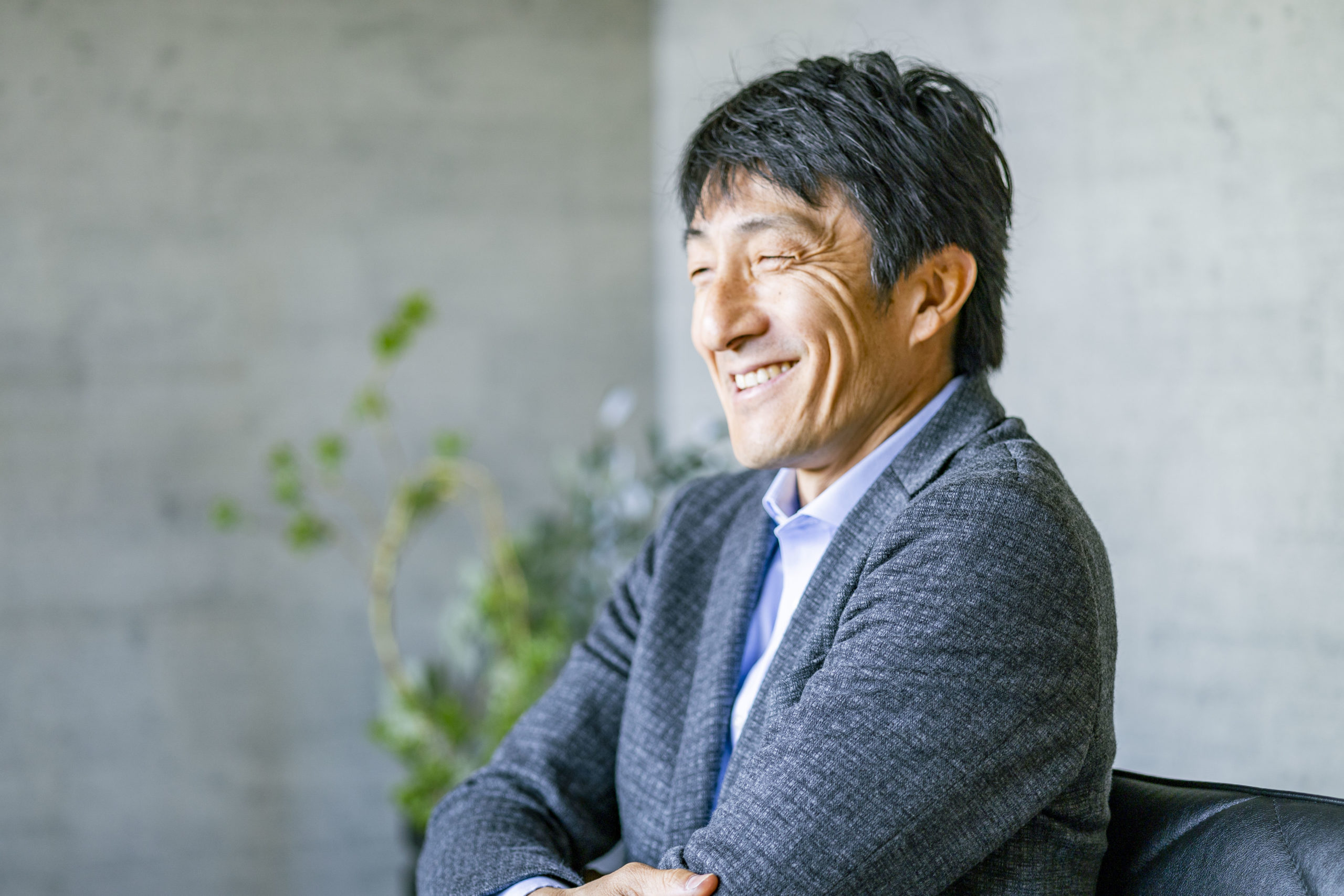
You first took up track & field when you got to high school, right?
“I played handball in junior high school, and when I got to high school I decided I wanted to try something new. At that time, a friend of mine invited me to join the Track & Field Club. I had always been a good runner, but I was never that good at long-distance running like marathons. I started with the long jump because I wanted an event that could be decided quickly, and once I got to university, I started running the 100 meters more seriously.”
Your abilities quickly improved, leading to a win in the long jump at the All-Japan High School Championships and setting a new Japan record of 10.19 seconds in the 100 meters at the national championships during your third year of university. Because of this, you have a very high-profile presence.
“At first, I kept getting faster each time I ran, and I was really happy about that. I did my own research on how to run, train, and take care of my body, and when I tried those methods out my times improved even more, and I began to really enjoy running in competitions. Of course, the further up the ladder you go, the fiercer the competition is, and the races can come down to even a hundredth of a second. Amidst all that, I began to realize that the most enjoyable part about track & field is continually challenging your own potential.”
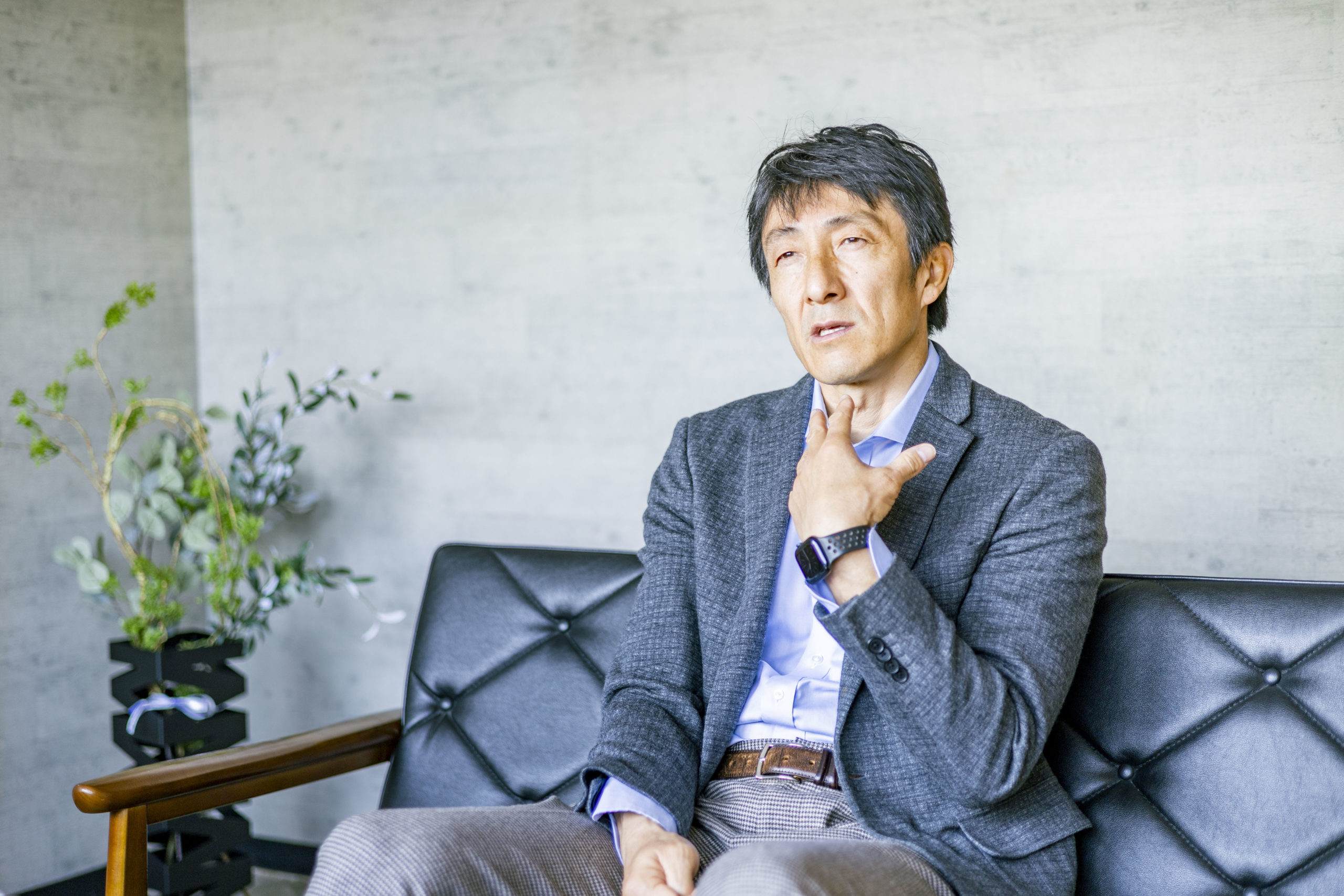
Can you share any particularly memorable moments from your 20 years of competition?
“My first two major events were the 1995 World Athletics Championships and the 1996 Olympics, and at my second World Athletics Championships in 1997, I made it to the semifinals in the 100 meters and the 4 x 100-meter relay. In that relay, we broke the Asia record, which made me and also other people feel that making it to the finals was more than just a dream. However, our wishful thinking backfired on us, and I overexerted myself, which resulted in an injury that required long-term treatment.”
Just when things were looking really good, you were sidelined for a long time because of an injury. It must have been very hard on you both mentally and physically.
“I seriously wanted to be the best in the world, so I took it upon myself to take on the mission of being a pioneer in the Japanese track & field world by performing at a global level. At that time, I was training really hard, but I didn’t take enough time for treatment and rehab despite the pain in my legs. As a result, the injury became more serious. No matter how motivated you are or how hard you train, it ends up being meaningless if you get injured and can’t compete. It was a huge failure as an athlete. So I was really feeling down at that time.”
How did you overcome this adversity as an athlete?
“Since the treatment I underwent was long-term, it gave me time to confront my body and explore new methods by identifying where my weak points were and what kind of training I should do to compensate for them, and determine the best form to maximize my strength. I became able to keep my cool, which helped me stay more relaxed, and I became much more capable of dealing with my mind and body. I still remember how refreshing it was the first time I ran after coming back from my injury. Since then, I’ve become able to genuinely enjoy the feeling of running with the wind in my face, whether I win or lose. I guess you could say I’ve become one of those weirdos that can enjoy doing something even when it’s painful. Maybe that gap created by my injury contributed to my longevity, because I kept competing until the age of 36, and even now in my fifties, I still enjoy running and competing in things like the Masters Championships.”
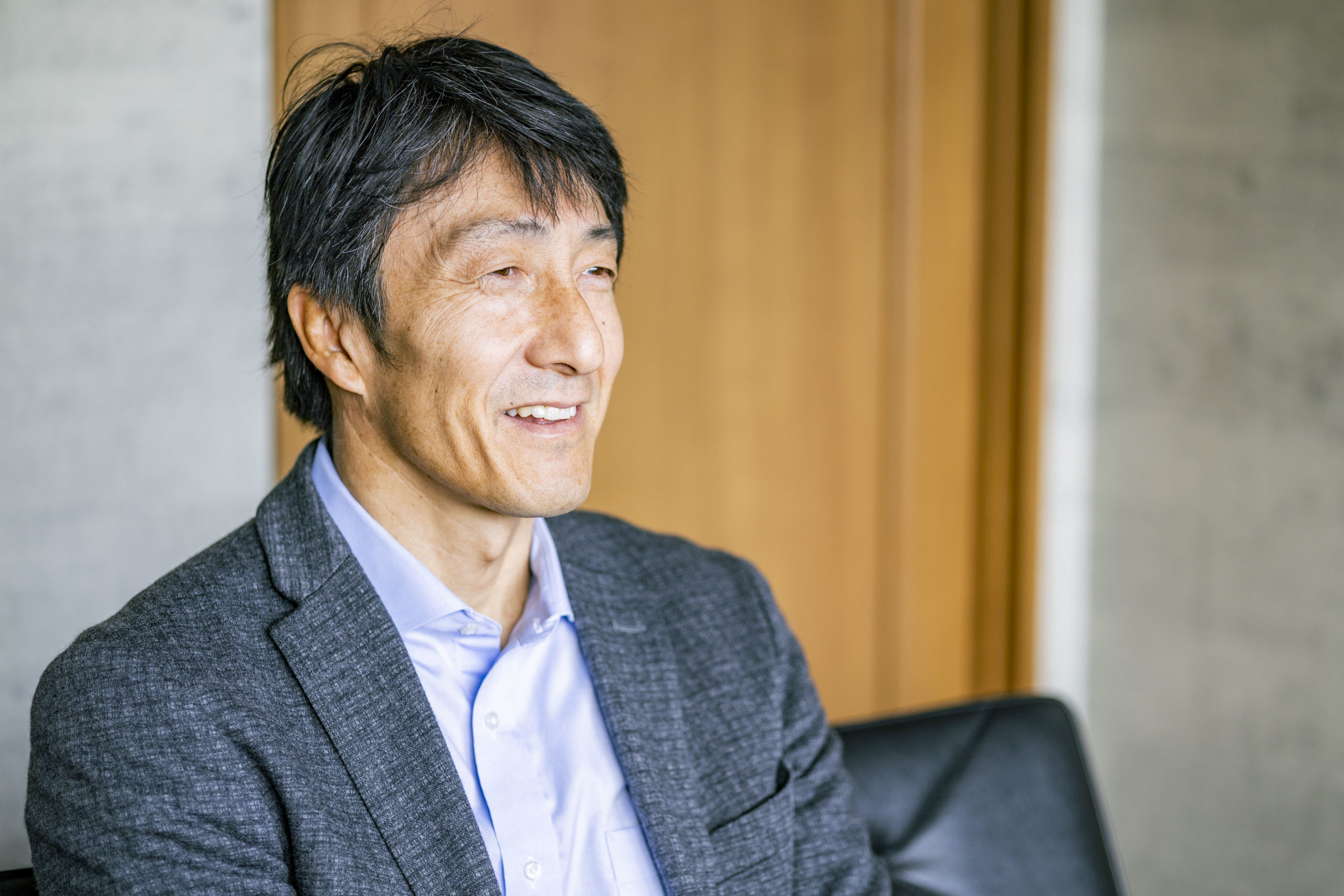
You competed in the 2007 World Athletics Championships, held in the Kansai region where your hometown is, at the age of 35. What are your memories from that time?
“The truth is that, by my mid-thirties at that time, my motivation had been waning and I was considering retiring. The Beijing 2008 Olympic Games were just around the corner, but I had already competed in three Olympics Games, so that was enough for me. That being the case, I decided to make the 2007 World Athletics Championships in Kansai, my hometown region, my final performance. I wanted to give the people a chance to see me run well and close the curtain on my career. So I told my relay team, ‘This is gonna be my last chance, so let’s win me a medal!’”
You made it to the semifinals in the 100 meters and finished 5th in the 4 x 100-meter relay - one step away from the medal you had hoped for, but didn’t quite make it.
“When we finished 5th in that relay, which I expected to be my last, I felt less disappointment, but rather a strong feeling of hope that my dream was about to come true. I felt that if I tried just a little harder, then I can definitely win a medal.”
So, you held off on retirement to compete at the Olympics, where you fulfilled your dream.
“We ran the relay with the same members we had at the World Athletics Championships, and I was the anchor. Words can’t describe how thrilled and elated I was when I checked the results of the race and knew for sure that we had won the silver medal. I consider it a blessing to have the medal I had always dreamed of and to think about how far I came to savor that moment.”
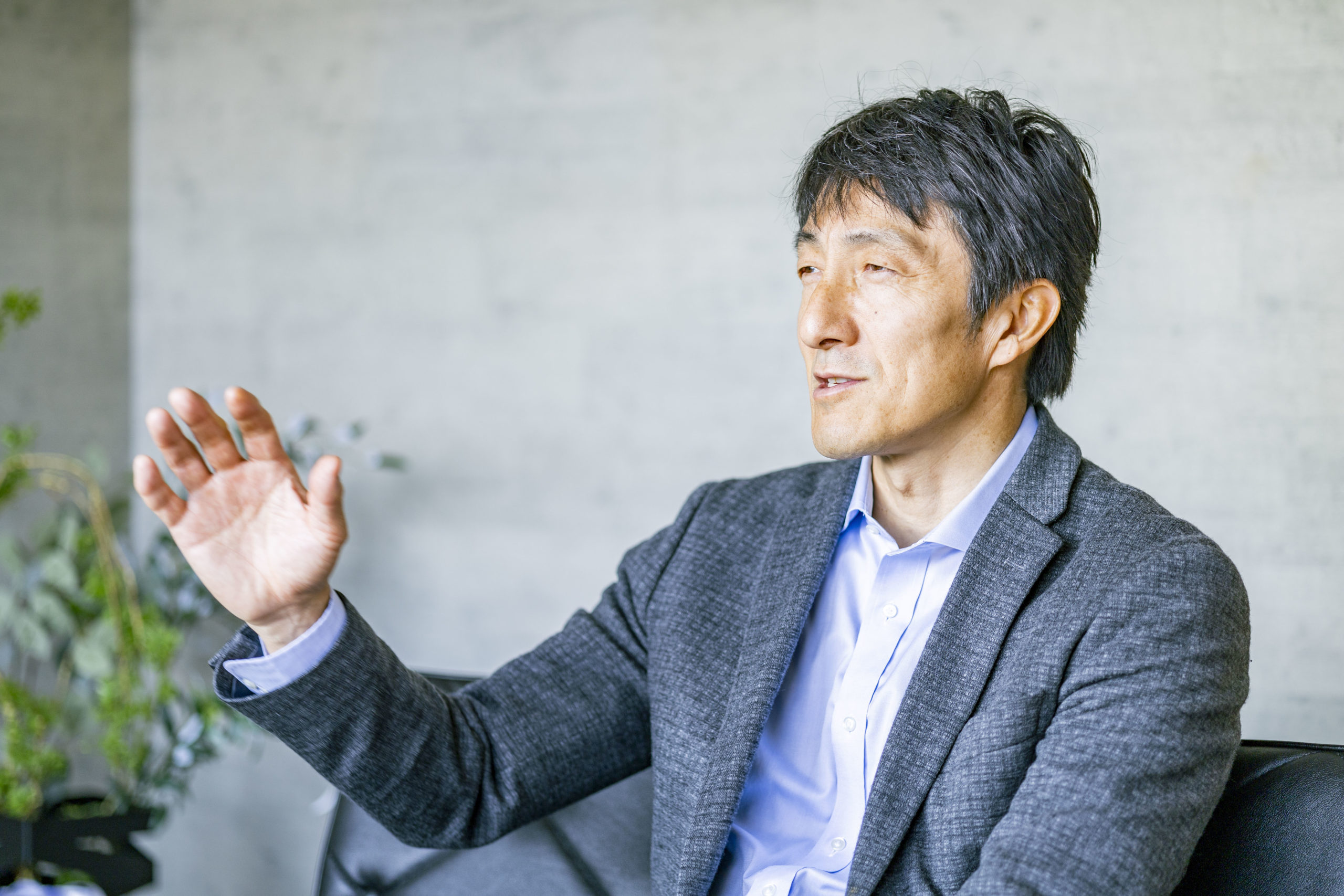
The World Athletics Championships are finally taking place in Tokyo this year. Who are some competitors we should keep an eye on?
“First, in the women’s javelin, there’s Haruka Kitaguchi. She’s won medals at both the World Athletics Championship and the Olympics, and she also won the Diamond League. Becoming the best in the world in an event that Japanese women had previously struggled to compete in up until then is an absolutely amazing feat. Other athletes to watch for in the finals are Abdul Hakim Sani Brown in the men’s 100 meters, Rachid Muratake in the 110-meter hurdles, and Shunsuke Izumiya, also in the 110-meter hurdles. It’s been a while since Japan has won a medal in the relay, so I’m looking forward to that as well.”
What kind of message would you like to send to the athletes?
“In a way, I think these athletes are quite fortunate to be able to take part in a world athletics competition in their home country. I would ask them to let them give their friends, family, and others a chance to see them in action. And also, most importantly, don’t get too worked up about it. At the 2007 World Athletics Championships in Osaka, many Japanese athletes were so preoccupied with things that they couldn’t show their full potential. To prevent something like that from happening again, I just want them to enjoy the tournament itself.”
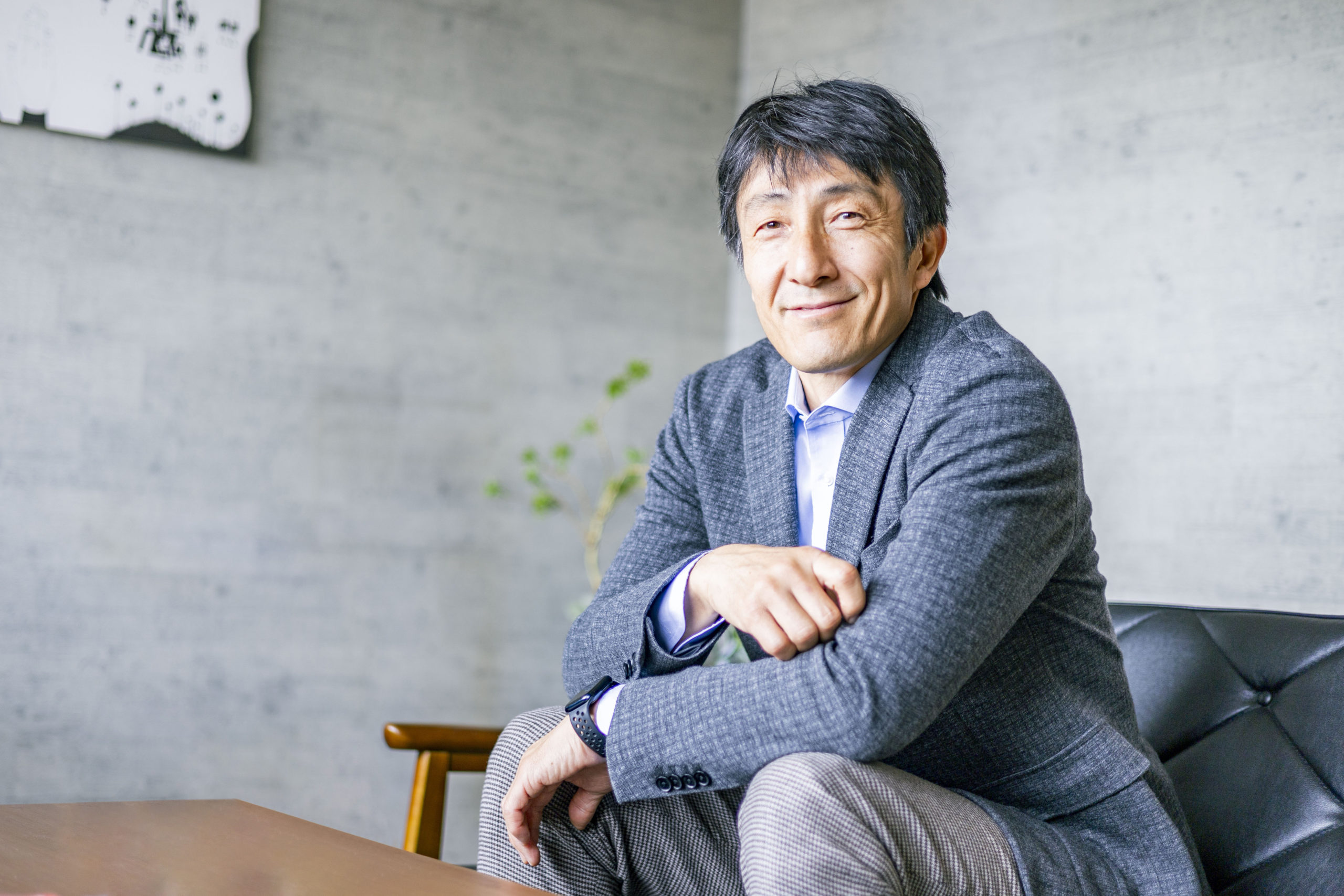
What are some places in Tokyo that you recommend for people visiting for the Championships?
“First of all, I hope they enjoy Japan National Stadium, which is the venue for the Championships. It was also the venue for the track & field events at the Tokyo 2020 Olympic and Paralympic Games, although those Games were held without spectators. This time, I want people to go to the stadium, cheer on the athletes with all their might, and make this an exciting event. The area around the stadium also has a lot of greenery and is a great place for taking a stroll. I hope that everyone coming to the Championships will also enjoy the sights and sounds of Tokyo while they’re here.”
<Profile>
ASAHARA Nobuharu
Born in 1972 in Hyogo Prefecture. Became a serious competitor in track & field in high school, and won the long jump at the All-Japan High School Championships. Set a Japan record of 10.19 seconds in the 100 meters at the national championships during his third year of university. Broke the Japan record three times. At the Beijing 2008 Olympic Games, his fourth Olympic appearance, he won the silver medal in the 4 x 100-meter relay. Competed in 6 World Athletics Championships. His best time in the 100 meters is 10.02 seconds. Retired from competition in September 2008. In September 2024, he won the men’s 100-meter M50 class (ages 50-54) at the 45th Japan Masters Athletics Championships with a time of 10.93 seconds.
Discover information on international competitions being held in Japan, as well as information about spots and activities where you can enjoy sports.
Enjoy a variety of sports with these helpful tips.
SPORTING JAPAN